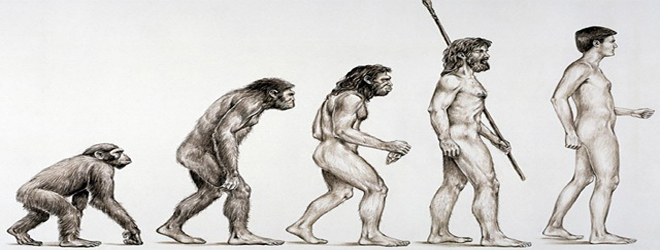
Humans have taken a seemingly mailroom to penthouse career trajectory to reach top-of-the-food-chain status. Where once we cowered in the lowland grasses of Africa with threats all around us, like saber-toothed cats, trampling mammoths, and bear-sized hyenas, now we conquer. At first we started standing upright and using tools – then we discovered fire – until one day we decided that we didn’t need even to go into the office anymore, so we established civilization and settled down. Yet, there were some unintended consequences of becoming CEOs of the animal kingdom.
One of those consequences is suffering from obstructive sleep apnea. It is true that perhaps the most important and advantageous human evolutionary advancement is the ability to speak. This seemingly magical ability has allowed us to warn other humans against predators and share information. Essentially, it has made us a thousand times smarter than other animals. But according to a theory proposed by Terence Davidson, M.D. (Department of Otolaryngology, U.C. San Diego), the biomechanical changes needed for speech have created obstructions in the respiratory tracts that cause the sleep disorder known as sleep apnea.
A lot work went into getting our voices from a few grunts to the smooth silky vocal stylings of Michael Bublé or the booming operatic acrobatics of Luciano Pavarotti. From apes to Neanderthals to Homo sapiens, our faces became flatter and our vocal cords were pushed back. As a result, our jaws became shorter, our tongue was tucked deeper in the back of our throat and the larynx was pushed even further in our chest. You can think of evolution as the greatest plastic surgeon in the world, but one that takes millions of years to complete his handiwork.
However, there were a few glitches in this unimaginably long process. One of these glitches is a space between the larynx and the soft palate, which can increase the chances of choking and food “going down the wrong pipe.” The only thing protecting us from food getting lodged in our trachea is the epiglottis, which is a glob of fat that closes the airway passage when we eat. Also, because of the strange placement of our tongues, it can tend to fall backwards into our throat when we are relaxed and asleep, thus causing multiple apneatic events that are characterized by seconds – sometimes minutes – without airflow.
Alas, though, there is a twist in this evolutionary story. Some researchers believe that these changes didn’t come about for the purpose of speech alone. They think these changes were resultant from our ability to stand upright and speech came later. Whatever the case is, sleep apnea is a definitively human experience. Plus, if we didn’t have sleep, we may not have the gift of speech. So, you can either wait a few more million years for evolution to fix the issue (by that time the earth may be covered in water), or you can start undergoing CPAP treatment and eliminate your symptoms today.
Source: “Paying the Price for the Ability to Speak: Sleep Apnea.” Robert Sack, M.D. -Open Spaces Magazine. 2006.









